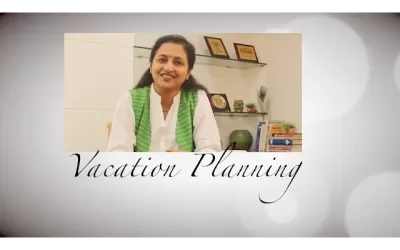Embracing Academic Reality: Breaking Free From Denial to Ignite Your Academic Journey
 Amidst all the academic challenges, it’s normal for students to find comfort in denial. Whether it’s dodging assignments or putting off facing upcoming exams, denial acts like a temporary shield, giving a break from the stress of academic responsibilities.
Amidst all the academic challenges, it’s normal for students to find comfort in denial. Whether it’s dodging assignments or putting off facing upcoming exams, denial acts like a temporary shield, giving a break from the stress of academic responsibilities.
But breaking free from denial is the first step to a more productive and enjoyable academic journey. Let’s discuss why denial isn’t the best move, how accepting reality is critical, and easy tips to kickstart and improve your study routine.
The Deceptive Comfort of Denial:
Denial is a seductive force that convinces us that we can deal with our academic challenges tomorrow, next week, or even next month. It whispers soothing lies, telling us that procrastination is a manageable strategy and that there’s plenty of time to catch up. However, the more we succumb to denial, the deeper the hole we dig for ourselves.
Mounting stress and anxiety:
The longer we delay facing our academic responsibilities, the more stress and anxiety we build up. What might have started as a small wave of procrastination transformed into a tsunami of overwhelming pressure. The looming deadlines and unpreparedness create a cycle of stress that can be paralyzing.
Deteriorating academic performance:
Denial often leads to a gradual deterioration of academic performance. The consequences of denial are reflected not only in grades but also in a lack of genuine understanding of the subject matter. The significance of grades, which initially represented a student’s dedication and comprehension, transforms into clear indicators of how denial has influenced their academic path. Yet the implications extend far beyond a simple grade on a report card. These consequences materialize in the student’s capacity to express and use their knowledge, acting as obstacles to their intellectual development and potential.
Overconfidence: A more significant pitfall
Being too confident can hurt your studies. Thinking you know everything might make you ignore the hard work needed for good grades. Overconfident students might need to prepare better, assuming they understand the material when they might not. This overconfidence often leads to lower grades because students might need to remember the importance of good study habits and time management. Being too confident when faced with challenging assignments or exams stops students from asking for help or using extra resources, which can hold back their academic progress and success.
Strained Relationships:
When a student embraces denial, it often breaks communication and trust between them and their parents. Parents, with their unwavering concern for their child’s well-being, are naturally invested in their academic success. In the face of denial, parents may perceive a lack of commitment and responsibility, further fueling their worry about their child’s academic future.
This strain can create an emotional distance, where the student feels hesitant to share their struggles and the parents sense a growing disconnect. The parent, sensing the academic challenges their child is facing, may express concern and a desire to help. Still, the student, shrouded in denial, might resist, creating a barrier that widens the emotional gap.
Embracing Reality: The Catalyst for Change
The antidote to denial is acceptance—acknowledging the current state of affairs and committing to change. Acceptance doesn’t imply defeat; it is the first step towards reclaiming control over your academic journey. It’s a conscious decision to face the truth, take responsibility, and set the stage for a positive transformation.
- Reflect on the Consequences: Take a moment to reflect on the consequences of denial. Consider the impact on your mental well-being, academic standing, and relationships. Acknowledge that the temporary comfort of denial outweighs the long-term toll it takes on your personal and academic life.
- Understand the root causes: Dig deeper to understand the root causes of your denial. Is it fear of failure, an overwhelming workload, or a lack of motivation? Identifying the underlying factors allows you to address them more effectively and tailor your approach to studying accordingly.
- Set realistic goals: Once you’ve accepted the reality of your academic situation, set realistic and achievable goals. Break down your tasks into smaller, more manageable components. Whether completing a chapter, submitting an assignment, or dedicating a set amount of time to studying each day, realistic goals provide a roadmap for progress.
Practical Strategies to Kickstart Your Academic Journey Again:
1. Create a structured study plan:
Develop a structured study plan incorporating specific studying times, breaks, and leisure. A well-organized schedule helps you manage your time effectively and provides a sense of routine and predictability.
2. Prioritize tasks:
Prioritize your tasks based on urgency and importance. Tackle the most critical assignments or challenging subjects first, ensuring that you allocate sufficient time and energy to the areas that need it the most.
3. Break down larger tasks:
Large tasks can be overwhelming, leading to a resurgence of denial. Break down significant assignments or study sessions into smaller, more digestible portions. Completing these smaller tasks builds momentum and a sense of accomplishment.
4. Utilize productivity techniques:
Explore productivity techniques such as the Pomodoro Technique, time-blocking, or the Eisenhower Matrix. These methods can enhance focus, efficiency, and the overall quality of your study sessions.
5. Seek support:
Don’t hesitate, or don’t let your pride or fear get in the way of seeking support from teachers, classmates, or even parents. Discuss your academic challenges, ask for guidance, and leverage the knowledge and experience of those around you.
6. Accept the reality:
Realizing you need to study more is essential for getting better at academics. It’s a moment to be honest and make positive changes. When you admit this, you can stop denying it and start thinking about what to do. You can make a plan to study, set goals you can reach, and manage your time better. It’s not about feeling bad about what you haven’t done; it’s about starting over, learning from mistakes, and moving confidently toward success in your studies.
Remember, every moment is an opportunity for a fresh start. The decision to face the truth and take positive action catalyzes transformative change. Embrace reality, reclaim control over your academic path, and let each study session be a step toward a brighter and more confident academic future.
Contact us or connect with us on Facebook, Instagram, Twitter (Now X), and LinkedIn, and subscribe to our YouTube channel.






